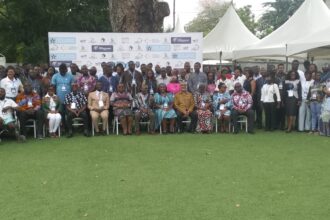Send- Ghana, a policy think tank has proposed that the government withholds the salary of any health worker who refuses a posting to particular regions in Ghana, as a deterrent to others.
The organization also called on Regional Health directorates of the Ghana Health Service to distribute health personnel especially doctors, nurses and midwives equitably within their respective regions in other to close the doctor-to patients gap.
The civil society group further wants each directorate to as a matter of principle, not accept any worker that has not been posted to their region and liaise with the Ghana Health Service headquarters to withhold the salaries of such workers till they report to their rightful regions and communities of post to serve as a deterrent to others.
These were among other recommendations made in a report released by SEND- Ghana and dubbed, Giving Patients Value for their Money: Are Clients satisfied with the Quality of Health Service.
The research was undertaken by the organization under its ‘Making the budget work for Ghana’ Project and was launched in Accra recently. The study was carried out in 30 districts across four regions including Greater Accra, Northern, Upper West and Upper East Region. The study interviewed and administered questions to 2026 respondents, with women constituting more than 56 percent.
The report indicates that out of Government of Ghana’s total actual expenditure on health in 2014 and 2015, 94 percent and 91 percent respectively were spent on health workers’ compensation.
Also, in 2017, 50 percent of the estimated allocation to the health sector will be expended on compensation.
In addition to compensation, an average of 3 percent of the health sector budget was allocated for pre, post and specialized service training, comprising of Ghc132.4 million, Ghc40.9 million and Ghc150.9 million in 2014, 2015 and 2016 respectively.
The report said “with such high expenditure on human resources, citizens expect to have quality health service delivery from friendly and welcoming health workers, resulting in patients’ satisfaction with the services rendered.”
It added that over the years, inadequate health workers in the country have been a challenge for the sector. Few professionals graduate each year, especially doctors, to work in health facilities. As a result, doctor –to –patient ratio in 2012 was 1:1,362 during the same period.
However, significant strides were made in addressing these challenges. The national doctors-to –patient ratio declined to 1:9,043 and 1:8,934 in 2014 and 2015 respectively.
On the hand, nurse-to- patient ratio also reduced to 1:959 and 1:739 in 2014 and 2015 respectively, surpassing the WHO’s standard of 1:1000.
In the area of nursing, the report showed that not all the districts surveyed received the number of health workers they had requested for. It said new workers received by the surveyed districts in the Upper East Region in 2014 and Upper West Region in 2015 were less of the number of health workers requested by the health facilities by 47 percent and 10 percent respectively. Meanwhile, for that same period, health facilities in the Greater Accra Region received 186 percent more than they requested.
Responding to some of the issues in the report, Dr Kwabena Twum- Nuamah, Chairman of the Parliamentary Committee on Health submitted that it was time the country looked at ways to incentivize doctors who are posted to deprived areas.
Dr Twum-Nuamah also emphasised on the need to create the right environments in terms of infrastructure to address the issue of patients’ privacy at health centers.
“As a Country we must create attractive forces to attract health workers to accept postings to deprived areas. We must also be very frank as a country to interrogate the system and put things right. It is time we stop beating around the bush and fix the problems confronting our health workers,” he maintained.
By Mohammed Suleman














